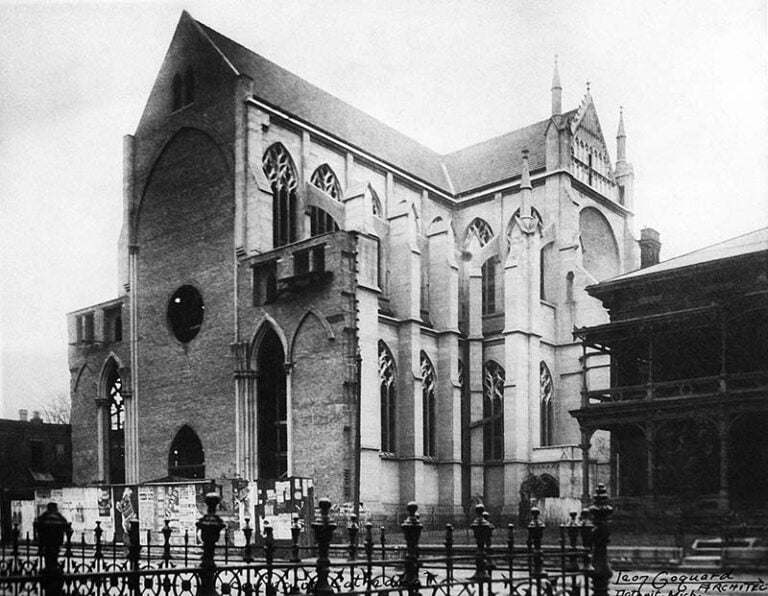By Berry Craig
NKyTribune columnist
It’s been a while since a Frankfort mob threatened to heave a politician into the Kentucky River or run one out of town with rocks and brickbats.
Apparently, the last time was 1795, when the city’s “vituperative, vitriolic little toad who seemed to enjoy making people mad” came home. The object of the rowdies’ disaffection was freshman U.S. Sen. Humphrey Marshall of Frankfort.
As cantankerous as this session of the General Assembly might get, it seems doubtful that any locals will seek to soak a solon in the capital city’s main stream or to harry one away.
Anyway, the Virginia-born Marshall was perhaps the most hated man in Kentucky in his day. The infant Bluegrass State was overwhelmingly Jeffersonian. Like his cousin, Chief Justice John Marshall, Humphrey was a devout Federalist. “…Such perversity was unforgivable,” reads the entry on Marshall in the 1936 Dictionary of American Biography.

A notorious atheist to boot, Marshall possessed “an extreme amount of candor and very little tact,” according to the DAB. “He did not believe in the rule of the masses and often publicly stated his contempt for them.
“He had a blistering tongue and a cutting pen, and though he spent all of his public life in the midst of bitter political warfare and personal contentions, he claimed never to have provoked them.”
No matter, nowadays an avowed infidel probably couldn’t get elected dog catcher in Kentucky. But it wasn’t Marshall’s well-known disdain for organized religion that fired the Frankfort folk.
Their dander was up over his vote for the controversial Jay’s Treaty with the hated British. Thomas Jefferson and his followers considered the pact a sellout, if not outright treason.
Several Jeffersonians lived in Frankfort. Some of them grabbed the senator and dragged him toward the river.
Not even Marshall’s bitterest enemies doubted his quick wit. While the crowd frog-marched him down the bank, the senator hatched a novel scheme to keep himself dry. The heretic opted to appeal to the tender mercies the Baptists among his captors, wrote Lowell H. Harrison and James C. Klotter in A New History of Kentucky.
“According to Baptist rules it is irregular to administer baptism before the receiver gives his experience,” the lawmaker reminded them. “If you are determined to proceed, let the exercise be performed in decent order. Let me give my experience first.”
The authors explained that “the concept was so ludicrous that the mob dissolved in laughter.”
Even so, Marshall was not out of harm’s way. Other steamed up citizens reportedly spotted the senator, grabbed rocks and brickbats and stoned him out of town.
Marshall survived and stayed in the senate until 1801. Six years later, he got reelected to the state House, where he had served in 1793-1794.
Marshall was expelled in 1808, but the voters reelected him in 1809. Marshall again landed in hot water by goading the popular young House Speaker, Henry Clay of Lexington, into a duel in which the combatants slightly wounded each other.
Marshall returned to the House in 1823-1824 as a publisher-politician. In 1810, he founded The American Republic, the only Federalist paper in the state, according to The Life and Times of Humphrey Marshall by A.C. Quisenberry.
Jeffersonian editors scorned the sheet as “The Snake.” The defiant Marshall revised the paper’s masthead to include a woodcut of a coiled rattlesnake, poised to strike. The serpent was accompanied by the motto: “Tread Not on Me. For My Country,” according to Quisenberry.
In addition, Marshall authored History of Kentucky.
Marshall died in 1841 at Glen Willis, his Frankfort Farm, and was buried on the property. He was either 80 or 81; his birth date is evidently unknown.
The “little toad’s” son, Humphrey Marshall Jr., stepped to a different drummer, too. While Kentucky remained loyal to Union in the Civil War, he was a Confederate general.
Like his father, Humphrey Jr. endured his share of scorn. Unionists, including George D. Prentice, the sharp-penned editor of the Louisville Daily Journal, frequently flayed Marshall, who was a large man.
Prentice once compared Marshall to rabidly secessionist Sen. John M. Johnson of Paducah. According to the editor, there was “no bigger scoundrel of in all Kentucky [than Johnson], except Humphrey Marshall, who has the advantage in avoirdupois, though perhaps not in heart.”
Berry Craig of Mayfield is a professor emeritus of history from West Kentucky Community and Technical College in Paducah and the author of five books on Kentucky history, including True Tales of Old-Time Kentucky Politics: Bombast, Bourbon and Burgoo and Kentucky Confederates: Secession, Civil War, and the Jackson Purchase. Reach him at bcraig8960@gmail.com


















